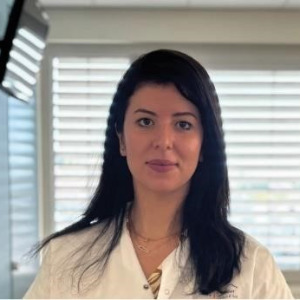Gynecologic Oncology
Gynecologic Cancers, including those of the ovaries, uterus, cervix, vulva, and vagina, present unique challenges that require specialized, multidisciplinary care. Gynecologic Oncology focuses on the diagnosis, treatment, and long-term management of these conditions, integrating surgery, chemotherapy, radiation, targeted therapy, and immunotherapy. Advances in molecular profiling, biomarker identification, and imaging techniques have enhanced early detection, risk stratification, and personalized treatment planning. Multidisciplinary teams—including gynecologic oncologists, medical oncologists, radiation specialists, and supportive care providers—work together to ensure comprehensive care that addresses both clinical and psychosocial needs. Early intervention, precise surgical planning, and tailored systemic therapies are critical to improving survival rates and reducing recurrence.
The field of Gynecologic Oncology continues to evolve with the development of novel therapeutic approaches and combination regimens. Targeted therapies, immunotherapies, and molecularly guided treatments are increasingly integrated into clinical practice, while research explores neoadjuvant and adjuvant strategies to improve response and outcomes. Survivorship care, fertility preservation, and supportive interventions are essential components of holistic patient management. By combining cutting-edge science with patient-centered care, gynecologic oncology aims to maximize treatment effectiveness, enhance quality of life, and provide durable remission. The integration of precision medicine, advanced diagnostics, and multidisciplinary collaboration ensures that patients receive optimized, individualized care across all stages of disease.

Rajvir Dahiya
University of California San Francisco, United States
Atif A Ahmed
University of Washington-Seattle Children’s Hospital, United States
Thomas J Webster
Northeastern University, United States
Paulo Cesar De Morais
Catholic University of Brasilia, Brazil
Allen Chen
Olympic Medical Center, United States
Shilpa S Dhar
UT MD Anderson Cancer Center, United States



Title : A novel blood-based mRNA genomics technology for cancer diagnosis and treatment
Rajvir Dahiya, University of California San Francisco, United States
Title : Nanomedicine in humans: 30 years of fighting diseases
Thomas J Webster, Northeastern University, United States
Title : Diagnosis and treatment of primary cardiac lymphoma in an immunocompetent 27-year-old man
Moataz Taha Mahmoud Abdelsalam, Madinah Cardiac Center, Saudi Arabia
Title : tRNA-derived fragment 3′tRF-AlaAGC modulates cell chemoresistance and M2 macrophage polarization via binding to TRADD in breast cancer
Feng Yan, The Affiliated Cancer Hospital of Nanjing Medical University, China
Title : Multiplexed biosensor detection of cancer biomarkers
Michael Thompson, University of Toronto, Canada
Title : Personalized and Precision Medicine (PPM) through the view of biodesign-inspired translational research: An option for clinical oncologists, caregivers, and consumers to realize the potential of genomics-informed care to secure human biosafety
Sergey Suchkov, N.D. Zelinskii Institute for Organic Chemistry of the Russian Academy of Sciences, Russian Federation